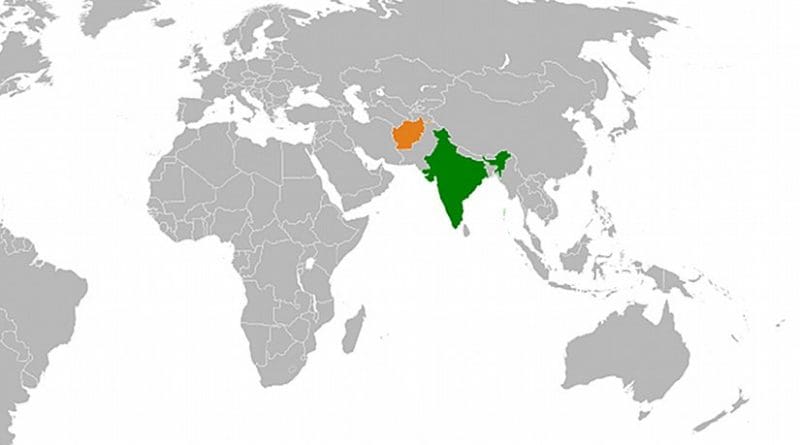Indo-Afghan Strategic Partnership Agreement: Potential Problems – Analysis
By IPCS
By Aryaman Bhatnagar
The recently held talks between Hamid Karzai and Manmohan Singh culminated in a strategic pact between the two countries. It entrusts India with the responsibility of training the Afghan Army once the American troops withdraw from Afghanistan in 2014. It carries immense potential in terms of strengthening the Indo-Afghan ties. But increasing India’s influence in Afghanistan, especially to fill up the vacuum resulting from the American withdrawal, is also likely to create problems. In this context what are the problems that might crop up for India? And how can they affect Afghanistan?
Potential Harm for India
First, are the Indians stationed in Afghanistan going to be more vulnerable now to the violence perpetrated by the Taliban and other insurgents? In all probability they are and will be in the near future.
The Indians in Afghanistan, as of now, have not been targeted at the same rate as the Americans and Europeans, who play an active military role. It is their combative and non-combative military role, which probably makes them more likely targets as they are seen as the biggest obstacle to an outright military victory of the insurgents. India has been among the largest foreign donors in Afghanistan having contributed nearly US$2 billion over the last 10 years but its aid has been confined to developmental projects. In particular, the Indian presence can be felt in the areas of education, health, power, telecommunications and infrastructure such as roads and highways. The Indian security personnel in Afghanistan number only about 500 and have been stationed primarily to provide protection to the Indian workers. Despite this Indians have been targeted, the most prominent attack being the one on the Indian embassy in 2008.
It is highly plausible that once the Indians start playing a military role in Afghanistan, albeit a non-combative one, they are going to be targeted much more than they are currently. With the way things stand currently it is highly unlikely that the Afghan government will be able to reach a power-sharing agreement with the Taliban. In such a scenario, the Afghan Army that India is supposed to train would provide the greatest resistance to the Taliban once the foreign troops withdraw from the country. It is likely that the Indian trainers will increasingly be seen as military obstacles to the insurgents and targeted in the same way as the American and Europeans.
Second, are the Indians stationed in Afghanistan likely to be targeted more by Pakistan-sponsored attacks? Once again it seems highly probable.
Pakistan is highly suspicious of the Indian presence in Afghanistan and believes that India is using her consulates along the Afghanistan-Pakistan border as a base to stir trouble in Pakistan. India believes that such suspicions have led Pakistan to continue its support for the Taliban and also sponsor attacks on Indian targets. This strategic pact has already caused more unease and tension in Pakistan. The fear of being wedged between Indian trained troops on both its flanks is probably going to deter it from reining in the militants that use Pakistan as a base to carry out its operations in Afghanistan. The increasing Indian influence in Afghanistan on account of this pact may even encourage Pakistan to sponsor more attacks against the Indian projects in Afghanistan.
Potential Harm for Afghanistan
The real harm for Afghanistan from this pact lies in the impact that it would have on its ties with Pakistan, which could affect the bilateral peace talks between the two countries.
Karzai has stated that this pact is not meant to target Pakistan, which is Afghanistan’s “twin brother”. However, such statements have not allayed the Pakistani fears and they have already warned Afghanistan that it should act responsibly. The pact is likely to further deteriorate the Afghanistan-Pakistan ties, which are already strained due to the stream of allegations emanating from Kabul against Pakistan. This hardly provides an encouraging environment for successful talks to take place between two countries that have a history of mistrust and suspicion.
Moreover, Pakistan is likely to feel alienated and frustrated at the prospect of India further enhancing its influence in Pakistan’s own backyard and, especially, at its own expense. Pakistan would prefer to play the predominant role in post-2014 Afghanistan with India’s role being restricted to providing only aid and investments. However, the new pact suggests India will play the more dominant role post-2014 and this too could prove to be a stumbling block in the dialogue between Afghanistan and Pakistan.
There is much to gain from this pact for both India and Afghanistan. However, while the pact can be hailed as a true landmark – the first in Afghanistan’s history – there are certain serious misgivings as well for both India and Afghanistan that cannot be overlooked.
Aryaman Bhatnagar
Research Intern, IPCS
email: [email protected]


The question that need to be asked is India willing to ride the tiger in Afghanistan? Ask the Americans who have been riding this tiger for over a decade and are now wary to get off its back. What are India’s choices, any way?